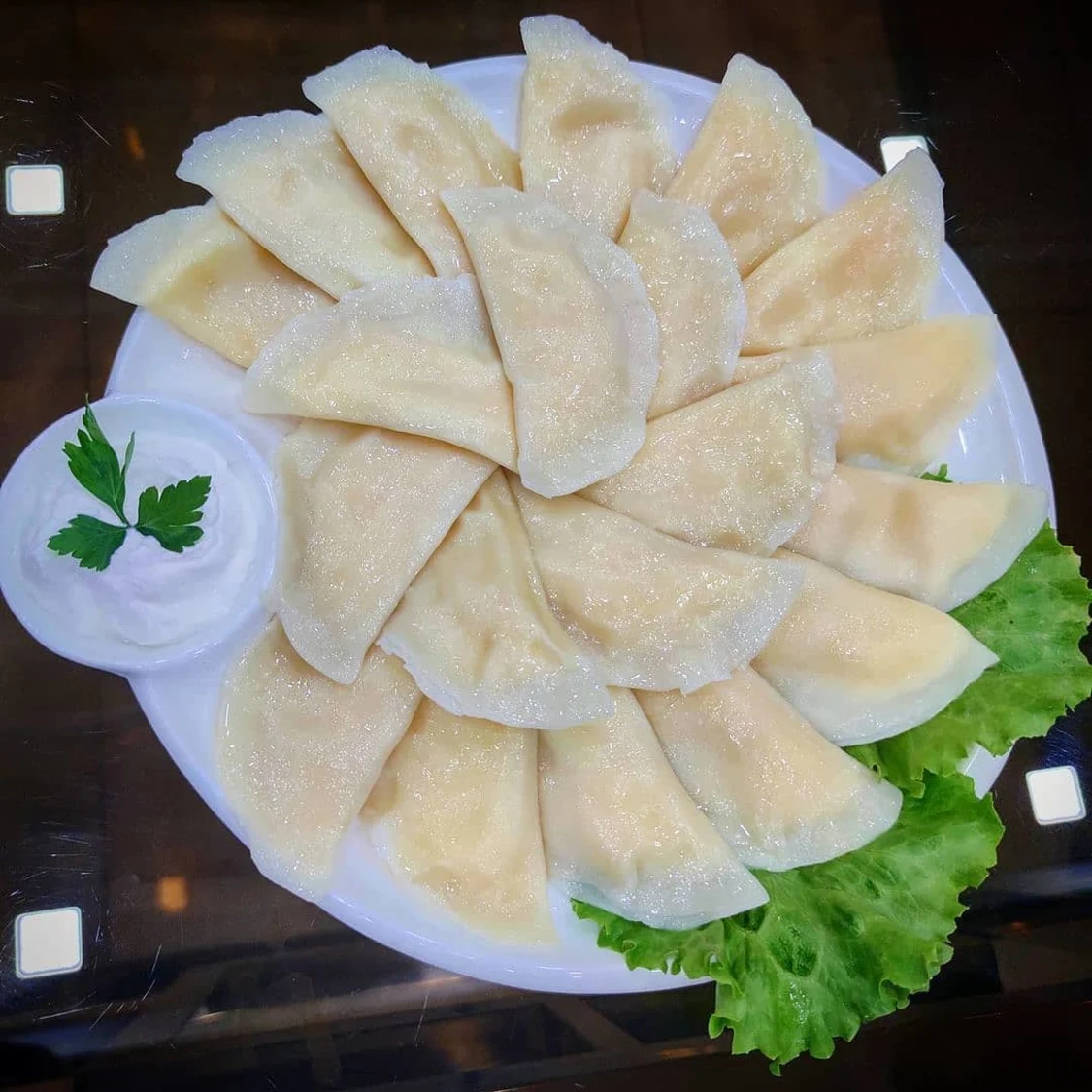
Tukhum Barak
Small dumplings filled with eggs and spices, served in broth.
Ingredients
- •Flour
- •Eggs
- •Onions
- •Black pepper
- •Salt
- •Chicken broth
Instructions
Make Dough
Prepare dumpling dough
Make Filling
Mix eggs with spices for filling
Form Dumplings
Fill and shape the dumplings
Cook
Boil in broth until cooked
Tukhum Barak is a beloved Uzbek dish consisting of delicate dumplings filled with a savory egg mixture, typically served in a flavorful chicken or meat broth. The name comes from "tukhum" meaning egg and "barak" meaning dumpling in Uzbek, perfectly describing this comforting soup dish.
The art of making Tukhum Barak has been passed down through generations in Uzbek families, with each household having its own slight variations on the recipe. The dish is particularly popular during colder months when warm, hearty soups are most appreciated.
Creating these dumplings requires skill and patience. The process begins with making a simple dough from flour, eggs, and water, which is rolled out very thinly. The filling consists of beaten eggs seasoned with finely chopped onions, black pepper, and other spices. The dumplings are carefully shaped into small crescents, ensuring the egg mixture is well-sealed inside.
While the traditional recipe calls for a simple egg filling, some modern variations include adding herbs like dill or parsley to the filling, or incorporating finely chopped mushrooms for extra flavor. Some families also add a touch of ground meat to the filling for a more substantial meal.
In Uzbek homes, Tukhum Barak is often served as a starter or light main course. The dumplings are cooked directly in a well-seasoned broth and served hot, garnished with fresh herbs. It's common to find this dish at family gatherings and during the winter season when warm, comforting foods are preferred.
From a nutritional standpoint, Tukhum Barak is relatively light compared to many other Uzbek dishes, with each serving containing approximately 300-350 calories. The eggs provide a good source of protein and essential nutrients, while the broth adds hydration and minerals. However, the dish contains gluten from the flour-based wrapper, so it's not suitable for those with celiac disease or gluten sensitivity. The dumplings are best enjoyed fresh, as the delicate texture of the wrapper can become too soft if left in the broth for too long.
